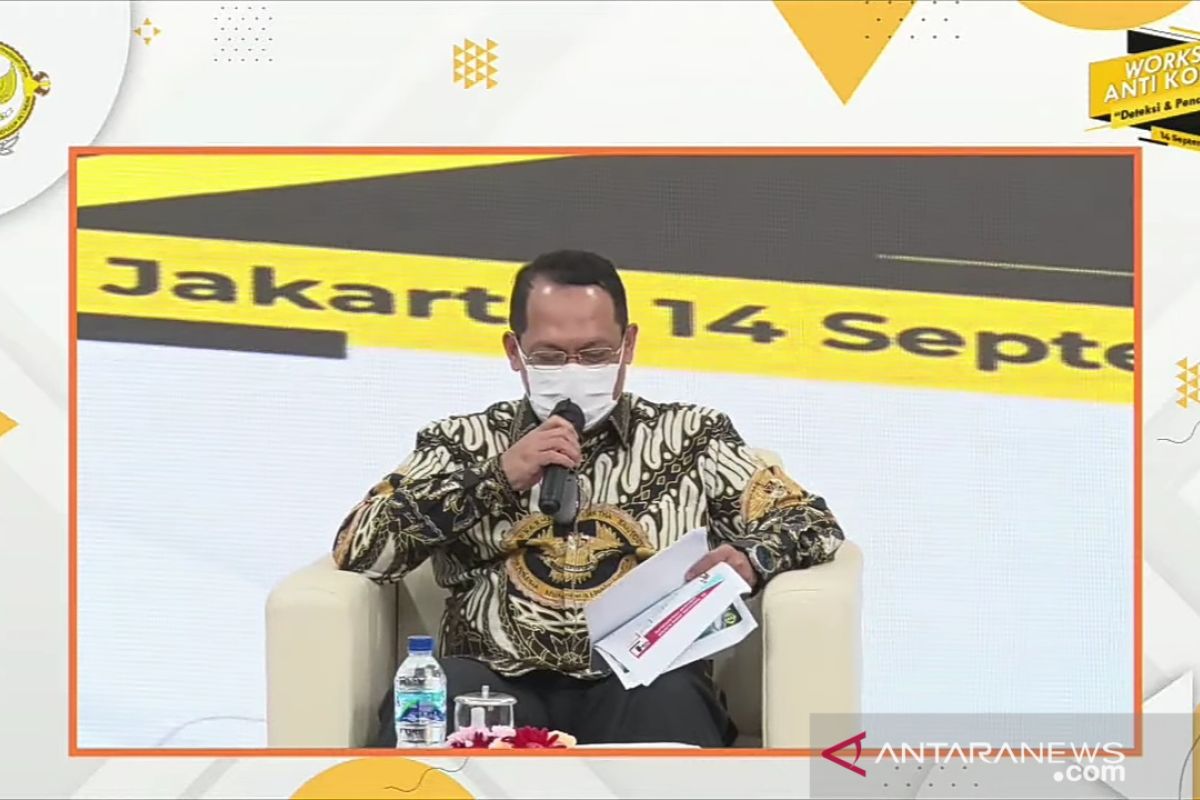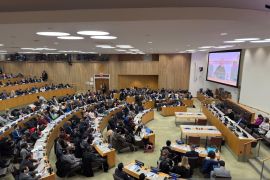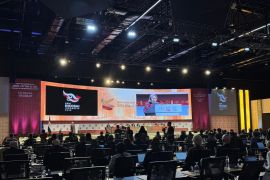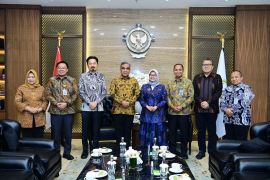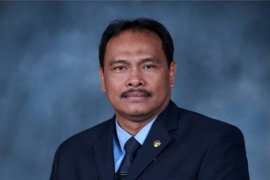Hence, by auditing the finances, performance, and any other reasons to investigate certain aspects, we are accessing which control system and risk assessment from the ongoing system were being stalled.Jakarta (ANTARA) - Indonesia's Supreme Audit Agency (BPK) is partaking in efforts to eradicate corruption through a finance management audit conducted in various ministries and institutions, central and regional government, as well as state-owned enterprises.
“Hence, by auditing the finances, performance, and any other reasons to investigate certain aspects, we are accessing which control system and risk assessment from the ongoing system were being stalled,” BPK’s deputy chairman, Agus Joko Pramono, stated during an anti-corruption workshop on “Corruption Detection and Prevention” televised here on Tuesday.
Related news: COVID-19 threatens realization of five goals of SDGs program: BPK
If the finance, performance, and other certain purpose audits are integrated, the BPK can project fraud risks or the process crossing the standard in the near future, he expounded.
Through BPK's audit, a weak control system in an institution can be detected, he remarked, adding that the board then issues some recommendation aimed at improving the internal control system.
Related news: BPK-BPKP cooperate to expedite review of state financial reports
The board can follow up on such a detection by conducting investigative audit, either based on its initiative or the requests of law enforcement officials, he explained.
“We also play a role in the investigation process, repressive prosecution through the state’s loss calculation, and the provision of expert testimony at trial. Usually, the requests are from law enforcement officials followed up from BPK’s investigation or their own investigation,” Pramono highlighted.
The state’s losses calculated by the BPK must be real and definite, such as asset reduction, cash, or state’s securities, he noted, adding that the board did not calculate the state’s losses due to forest destruction in Riau or mining in Papua.
“This is because the standard of the state’s losses must be real and definite by measuring the standardization process and assessing the appropriate standard. Thus, we cannot complete those that are not yet stipulated in the law or in any existing regulations,” he remarked.
Related news: Search on for two missing healthcare workers in Papua: army
Related news: RI's G20 Presidency to benefit economy, facilitate social development
Translator: Sanya Dinda, Juwita Trisna R
Editor: Fardah Assegaf
Copyright © ANTARA 2021
